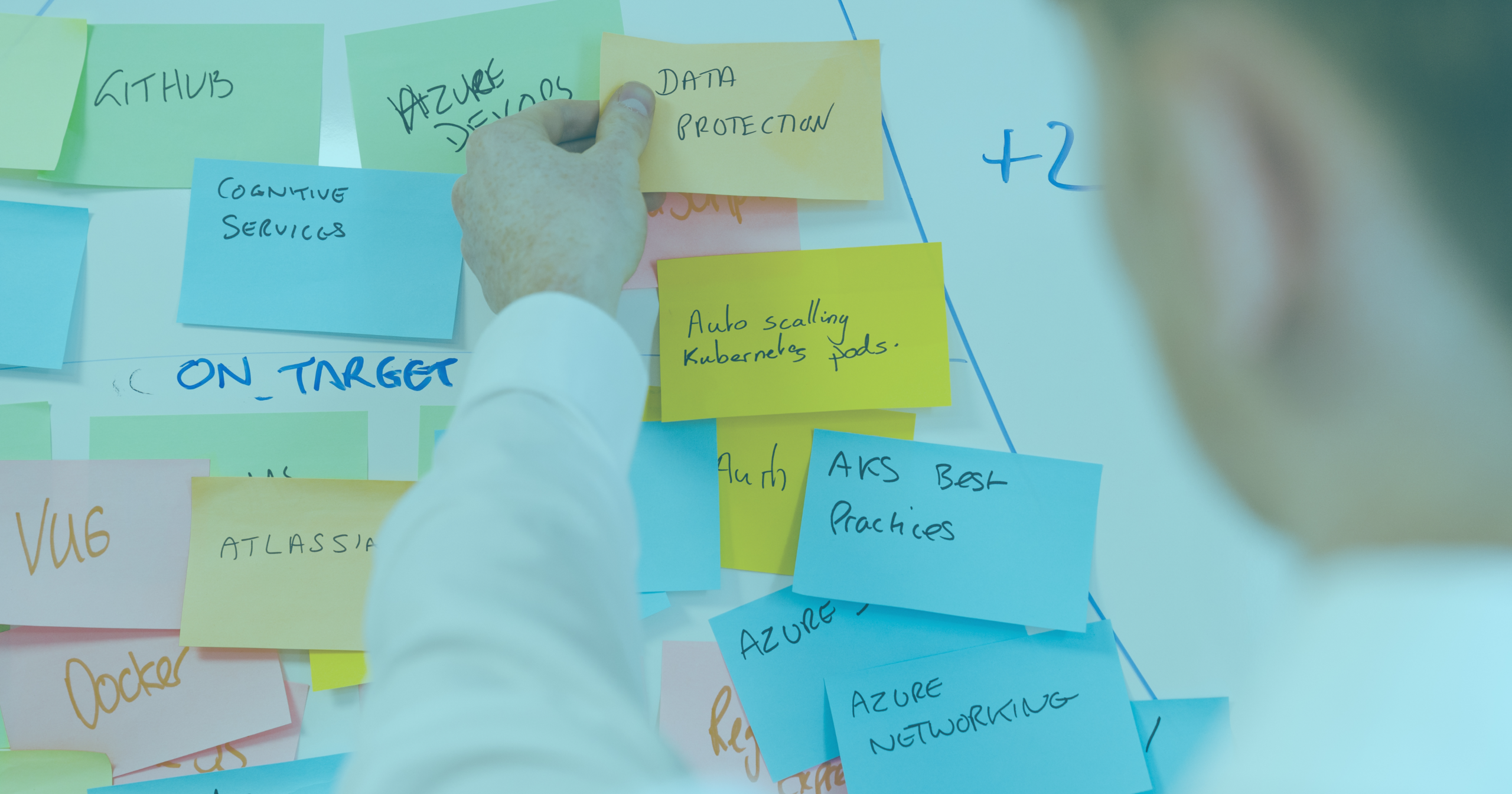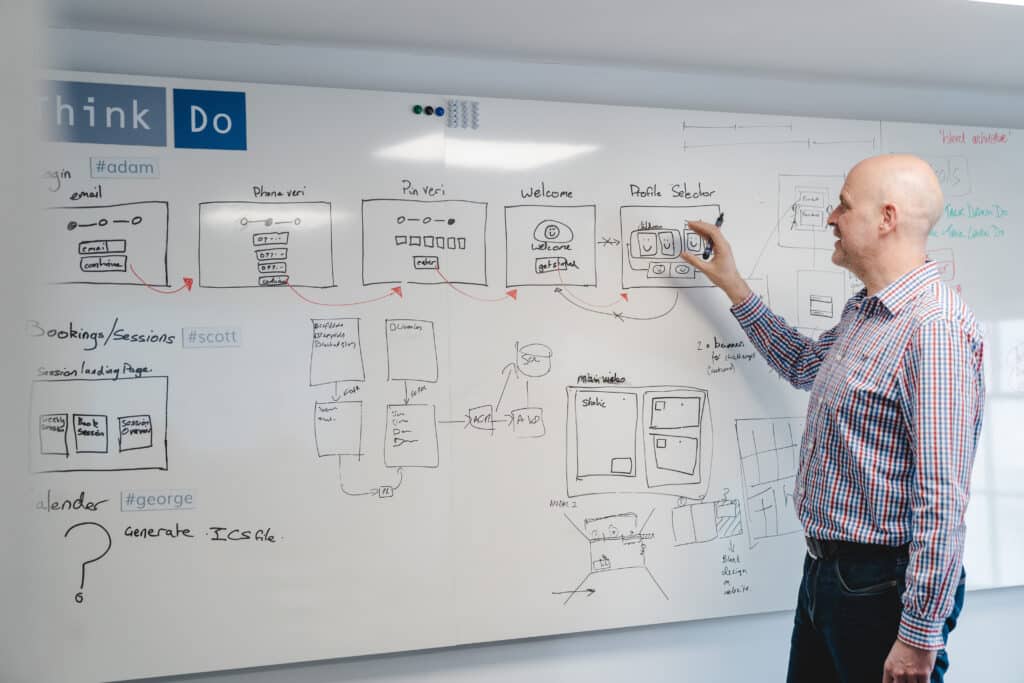DevOps Modernisation: Bringing in a New Era of Cloud Applications

DevOps has profoundly changed the way in which applications are developed and modernised. A combination of tools and working methodologies, DevOps allows organisations to increase product delivery speeds, encourage agile working processes, and connect previously siloed development and operations teams.
Studies show that the success of DevOps is not going to slow down any time soon, as enterprises attempt to drive their business objectives and outcomes further.1 Kaspar von Grünberg, Founder and CEO of Humanitec, recognises DevOps as ‘crucial to the success of modern engineering organisations’ — and he is just one of many experts to hold this opinion.2
A process in need of change
However, there are signs that DevOps needs change: after a decade of research, infrastructure automation company Puppet concluded that DevOps is ‘rarely done well at scale’, recognising that there was a sharp divide between high and low performers in the field.3
In this article, we’ll consider what business benefits traditional DevOps offers, why it needs to change, and what modernised DevOps might look like.
Suggested reading: Read our eBook, ‘Legacy Systems Are Costing Your Business Growth’, to learn more about the processes behind cloud application development.

What are the benefits of DevOps?
DevOps empowers businesses to stay ahead of market disruptors by connecting people, processes, and operations that were previously isolated. Let’s look at some of the key benefits of DevOps in more depth:
- Scalability: DevOps helps businesses overcome scalability challenges, allowing systems to be expanded during high demand and scaled down when demand drops. Adopting this kind of agile approach is especially important for cloud-native applications, where demand can fluctuate dramatically both day-to-day and over time.
- Structure: DevOps provides product and platform structure, helping software development teams to tackle technical debt by ensuring all code development is performed according to reliable processes. Code produced in this way is less likely to have problems that demand further attention in the future.
- Faster application delivery: DevOps allows applications to be delivered faster thanks to seamless communication, clearer internal processes, and continuous deployment. Digital expectations are growing and developers are coming under increasing pressure to deliver high-quality code as fast as possible. Faster application delivery will result in happier customers and a stronger competitive advantage.
- Greater efficiency: DevOps encourages teams to work more efficiently by creating an agile development environment that utilises continuous development and delivery.
- Driving innovation: DevOps improves communication between previously siloed processes and teams, allowing innovation and organisational growth to flourish.
451 Research found that 51% of organisations viewed business objectives and outcomes as their leading priority while they refined, improved, and expanded their DevOps implementations.4
Every business owner should ask themselves whether their existing DevOps practices are meeting goals and driving outcomes in their company.
Why does DevOps need to change?
Although DevOps offers many business benefits, it is starting to show signs of its maturity. The DevOps movement started sometime between 2007 and 2008, and, like anything in the application development sphere, it needs to change, innovate, and grow.5
And this need for change is starting to be reflected in DevOps’ global performance. The most recent State of DevOps report found that the proportion of middle and low performers was increasing, while the existence of ‘elite performers’ disappeared altogether.6 Although the reason for this dramatic decline in DevOps’ success can’t be pinned on a single factor, two likely causes are:
- Poor security processes and policies
- Difficulty finding staff with the right skills
Let’s explore these problems in more depth.
1. Difficulty finding technical staff
The demand for technical talent is at an all-time high, with 72% of tech teams estimated to be facing a skills shortage.7
The number of developers with the right skills and knowledge is limited, especially when it comes to complex, cloud-specific application development and bespoke application support.
Maintaining good communication is also becoming more difficult as processes become more complicated and require a higher skill level. Many businesses are struggling to maintain the culture of collaboration that created DevOps in the first place.
2. Not having security integrated into their workflow
Most DevOps teams will say that security is a top priority for their company — yet on average DevSecOps is only used in 25% or less of the application development process.8 By not integrating security processes into the application workflow, developers risk producing poor-quality code that puts the security of the final product at risk.
The reduced use of DevSecOps can occur for many reasons, but is often down to the fact that many businesses are unwilling to sacrifice speed to market for security. One report even showed that 68% of business executives say their CEO doesn’t allow DevOps teams to deploy any security measures that slow the company down.9
Balancing speed with a continuously integrated software security strategy is one of the biggest DevOps challenges facing teams today.
Suggested reading: Want to discover industry-leading development companies that employ modern DevOps processes? Read our blog, ‘10 Most Innovative Tech Partners in the UK’, to learn more.
So, what does DevOps modernisation look like?
DevOps modernisation is essential to ensuring DevOps continues to be as successful as it has been in the past. At their core, modern DevOps processes should focus on collaboration, automation, flexibility, security, and awareness.
Culture of collaboration and communication
A collaborative and communicative culture was at the centre of original DevOps processes. However, it may have been diluted over time as development tools and procedures became more complex. The latest Forrester report emphasised this point, stating:
‘Never underestimate the importance of cultural transformation. Laggard organisations punish the bearers of bad tidings and don’t understand failure as a learning opportunity’.10
Re-establishing a culture of collaboration and communication, both within teams and the processes they use, is essential if organisations want to modernise their DevOps solutions and maximise their business value.
Flexible adaptation
Taking an agile approach to DevOps will give you the flexibility to adapt to the ever-changing process of application innovation. To ensure that software is all working effectively and integrated correctly, features should be written and deployed in small pieces.
This DevOps approach is generally known as continuous integration/continuous delivery (CI/CD) and describes the automated process of testing and deploying code. CI/CD pipelines support an agile methodology and allow application developers to experiment, adapt, and alter code on an ongoing basis.
Maintaining this flexible approach is key to developing strong cloud applications that run seamlessly and suffer minimal downtime.
Pro tip: Read our ‘Explore Learning’ case study to see how agile development processes enabled faster delivery of an e-learning application.
Easy implementation and use
The purpose of DevOps is to make the development lifecycle easier and enable providers to deliver modern applications faster than with traditional software delivery processes.
This means all tools and methodologies should be straightforward to implement, and should not restrict the workforce to a limited few who understand them. Easy implementation will also make it easier for application developers to make changes to code — ensuring that any required amendments can be performed quickly.
DevOps processes can be made more accessible through:
- Open-source code: Integrating open-source code and using well-known third-party tools allows your processes to be accessible to a wide range of technical experts.
- Standardised processes: Standardising DevOps processes throughout a company makes it easy for developers and operations specialists to collaborate and work together.
Process automation
DevOps process automation is the practice of using specialised tools and methodologies to automate processes and speed up repetitive and manual tasks. It is arguably the most important part of DevOps modernisation but, unfortunately, it is also the most difficult to implement. Process automation practices could include:
- Automated code testing: Testing is crucial in the software development process, but it is also time-intensive. DevOps code testing software automates the process and reduces human intervention, making testing faster and more accurate.
- Cloud-based automated infrastructure: Cloud databases offer many benefits to implementing DevOps automation practices. Reports have shown that companies that use the cloud are 14% more likely to exceed organisational performance goals, a testament to the importance of basing automation within the cloud.11
- AI integrations: AI has been gaining popularity in the DevOps space, with 37% of teams using AI/ML in software testing and 51% using it to check code in 2022.12 Teams can use AI software to automate various processes including software testing, code review, and security testing.
Automating DevOps processes takes time, but it is well worth the extra effort. Taking advantage of new technologies to streamline the development lifecycle is one of the best ways to modernise DevOps processes and improve efficiency.
Enhanced security
Security and risk management have established their own field within DevOps, known as DevSecOps. However, many developers have found balancing speed with an integrated software security strategy incredibly challenging.
The truth is that many businesses that use DevOps don’t employ DevSecOps, putting their security at risk. This is especially alarming considering that during the first half of 2022 alone, the number of malware attacks worldwide reached 2.8 billion.13 A security breach during the development process can have a devastating impact, both in terms of financial losses and damage to reputation.
Development security can be improved by:
- Establishing security as a shared responsibility that is monitored throughout the development lifecycle.
- Building security into all stages of software development.
- Ingraining the protection of data systems in workplace culture to help ensure the future of cloud security
Ensuring the software supply chain is fully secure, and that modern DevOps practices such as infrastructure as code (IaC) are consistent with SSDF, C-SCRM, NIST, and other industry-recommended guidance practices, is essential to a strong DevSecOps structure.
Compliance reporting
Where DevOps encourages faster, more agile application innovation, it also increases the chances of compliance requirements slipping through the cracks and thus puts the legality and functionality of the final product at risk. Compliance reporting requirements permeate every part of the development process, and can include:
- Policy compliance
- Internal compliance
- Open source compliance
- Contractual agreements
- Compliance with industry standards
In order to meet all of these different standards across both development and business teams, companies should ensure that their compliance reporting process is ongoing, and compliance assessments are taking place throughout the development lifecycle.
This is especially true for companies that use open-source software in their applications, as they must ensure they are compliant with all necessary open-source licensing policies.
Compliance standards can be maintained through the use of compliance technology, which can assess the software code against a range of criteria — however, this should be used alongside rather than in replacement of modern DevOps processes.
Taking this kind of dualistic approach will help to ensure that nothing slips through the cracks and that all necessary individuals and teams have a deep understanding of what compliance is required and where.
Pro tip: Talk Think Do is a certified Microsoft Solutions Partner, and adheres to all relevant UK compliance requirements. See our ‘Technology partners’ page to learn more about our certifications and partnerships.
Value stream management
Value streams are all of the processes and requirements needed to deliver a piece of software, while value stream management (VSM) focuses on the assessment and monitoring of these streams.
Value stream management is a strong way to ensure companies have end-to-end visibility of how well their DevOps processes are performing, and whether clients are satisfied with the final result.
This high level of visibility is crucial to providing business leaders with insight into the ROI of their DevOps investments. VSM was estimated to be one of the biggest investment priorities for DevOps teams in 2022, and shows no signs of slowing down as companies seek to maximise their ROI and minimise costs within tight market conditions.14
For DevOps to flourish, businesses must place a hyper-specific focus on the tangible value provided (and potential value lost) by their internal development processes. This self-evaluative approach is especially important in the field of cloud application development, where DevOps success has to be measured against a wide range of compliance and performance standards, increasing overall costs.
Modernise DevOps processes for seamless cloud application development
Enhanced cloud application development relies on modernised DevOps processes. This means promoting a strengthened culture of collaboration, automating core processes, enhancing DevSecOps, and assigning value stream management roles.
Admittedly, DevOps modernisation will not be realistic for all companies: it is expensive, time-consuming, and resource intensive. Businesses looking for application development services may find greater value in working with a development partner, who can offer the benefits of DevOps without the costs.
Talk Think Do is a UK-based cloud application development company, following modernised DevOps processes to ensure application speed, quality, cost-efficiency, and seamless deployment. We work to the highest Azure development standards and have a Microsoft Solutions Partner certification for digital and app Innovation.
Book a consultation with one of our specialists today to learn more about our cloud application innovation service.

1 A snapshot of modern DevOps practices today | GitLab
2 2023 State of DevOps Report Finds Platform Engineering Unlocks DevOps Success in the Enterprise
3 DevOps still ‘rarely done well at scale’ concludes report after a decade of research | The Register
4 A snapshot of modern DevOps practices today | GitLab
5 The history of DevOps: A visual timeline
6 State of DevOps report 2022: for secure software, team culture counts more than technology
7 Demand for Tech Talent | Robert Half
8 A snapshot of modern DevOps practices today | GitLab
9 Overcoming DevOps Security Challenges: Tips for CISOs | Qentelli.
10 The State Of DevOps, 2022 | Forrester
12 GitLab DevSecOps Survey Results 2022
Get access to our monthly
roundup of news and insights
You can unsubscribe from these communications at any time. For more information on how to unsubscribe, our privacy practices, and how we are committed to protecting and respecting your privacy, please review our Privacy Policy.
See our Latest Insights
Shipping AI in the Real World: Lessons From Our Latest Cycle
AI moves pretty fast. If you don't stop and look around once in a while, you could miss it. Recognising this, we have been running a structured approach to AI adoption for production systems. A critical element is ensuring we keep up with the latest approaches while retaining safety, responsibility and avoiding inefficiencies cause by...
Working as One Team: How Our Business Analysts Bridge Vision and Delivery
When clients partner with us, they often expect engineers and designers. But one of the most powerful roles behind a successful digital product is often less visible: the Business Analyst (BA). At Talk Think Do, BAs aren’t just requirement-gatherers. We’re connectors, between vision and execution, users and features, partners and platforms. In the recent delivery…
Implementing RAG AI Search on On-Premise Files with our AI Search Accelerator
As demand for AI‑powered tools like Microsoft Copilot grows, many organisations are asking the same question: “How can we harness the power of generative AI without moving our sensitive data to the cloud?” In this guide, we’ll explain why Retrieval‑Augmented Generation (RAG) is so effective for on‑premise data and walk through a practical approach using…
Legacy systems are costing your business growth.
Get your free guide to adopting cloud software to drive business growth.




